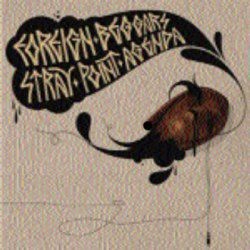| 9 Damien Rice (Heffa/Vector/Warner Bros.) |
Brazenly, the album opens not with Rice’s trademark, there’s-a-nail-stuck-in-my-heart warble, but with his backing vocalist, Lisa Hannigan, whose fragile voice was such a beautiful foil to Rice’s on many of O’s best songs. By verse two, Rice makes his appearance and “9 Crimes” becomes one of the album’s most affecting, if familiar, ballads. It’s followed by the first sign of Rice’s dial-change, “The Animals Were Gone,” a strangely upbeat and hopeful acoustic ballad backed by gentle strings: “At night I dream without you/And hope I don’t wake up/’Cause waking up without you/Is like drinking from an empty cup.” It’s not so much the lyrics here that separate 9 from O as Rice’s voice. He actually sounds like he looks forward to making “babies and accidental songs” with his lover. “Dogs,” about a girl who does yoga, is even happier, and you have to wonder if Rice is medicated these days.
There’s also anger, though. The anthemic “fuck you/fuck you/fuck you” chorus of “Rootless Tree” will make it a live favorite, while the dirty guitar of “Me, My Yoke and I” has a raw, bluesy feel to it behind Rice’s distorted, shouting voice. Rice hasn’t figured life out yet, but if these tracks are any indicator, he’s a lot more willing to experience the range of his emotions, rather than focus only on the worst ones.
— Cole Haddon
| Stray Point Agenda Foreign Beggars (Dented) |
If you’ve seen La Haine (Hate) — which I doubt you have, since no video store in the city seems to carry it — you know how the French ghettos have dominated European hip-hop. French artists such as MC Solaar never took off in the U.S. for the same reasons contemporary scatting hasn’t either: One of the joys of hip-hop is understanding the lyrics. Then there’s British hip-hop, which until recently hasn’t been worth squat. Big Brovas proved to be terrible — and redundant, as long as Black Eyed Peas (ugh) are still kicking out singles. More recently, there’s Dizzy Rascal, whom The Guardian and Pitchforkmedia.com have hailed as the creator of the first bona-fide British-born ghetto genre, “Grime,” but Rascal’s lo-fi synthesizer style is harsh on the American eardrum, the beats too alien for a stateside fanbase. I don’t count The Streets, and neither do the English.
Enter Foreign Beggars, whose 2003 album Asylum Speakers proved the potential for British hip-hop: a drum-and-bass-and Grime-influenced answer to America’s intelligent hip-hop (see first paragraph, clauses 2 and 3). The group is a five-member powerhouse: MCs Orifice Vulgatron and Metropolis, beat-boxer Shlomo, producer DagNabbit and DJ Nonames. Asylum Speakers wasn’t quite a breakthrough, but it seeded an underground fanbase, and the Beggars nabbed “Best Group” at the 2005 UK Hip Hop awards.
Their 2006 release, Stray Point Agenda, is a darker, slower album soldering the eeriness of Ghostface Killah and Wu-Tang clan to the melodic sensibilites of Massive Attack. Their working-class and immigrant accents exhibit a variety of rapping styles previously unknown to the uniform Ebonics of American hip-hop. Their language rhythms require adapted electronica beat systems — and that’s the secret ingredient. Previous British rappers failed by attempting to emulate their stateside brethren; British accents and American beats clash.
However, they’re not necessarily getting through in England. As they lyricize on their track “Slo-Speed”: “We’re trying to speak to a nation of people who don’t heed ... but all we ever do is sit back and smoke weed.”
Maybe there’s audience here. We need them, and it sounds like they need us.
— Dave Maass



